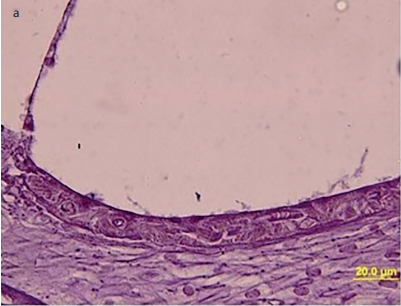Abstract
OBJECTIVES: This study aimed to evaluate the effect of quercetin on cochlear function and morphology, and its possible protective effect against acute cisplatin-induced ototoxicity in rats.
MATERIALS and METHODS: This prospective and controlled animal study was conducted on Wistar albino rats divided into four groups. Otoacoustic emission measures were performed three days after the first infiltration in Group 1 (saline), 2 (cisplatin), and 3 (quercetin). This interval was five days for Group 4 (cisplatin+quercetin). At the end of the study, the rats were decapitated with deep anesthesia, and histological changes in the cochleas were observed by light microscopy.
RESULTS: Group 2 (cisplatin) revealed significant differences between the first and second measures in all frequencies. When compared to other group, the difference of the changes in Group 2 statistically significantly decreased, especially in higher frequencies. Morphologically, there were no acute changes in Group 1 and Group 3. Outer hair cell loss and the degeneration of stria vascularis and spiral ganglion were observed in both Groups 2 and 4; the damages in the latter were lesser.
CONCLUSION: Quercetin does not have negative effect on cochlea, and it has protective effect on cisplatin-induced ototoxicity.
Cite this article as: Gündoğdu R, Erkan M, Aydın M, Sönmez MF, Vural A, Kökoğlu K, et al. Assessment of the Effectiveness of Quercetin on Cisplatin-Induced Ototoxicity in Rats. J Int Adv Otol 2019; 15(2): 229-36.


.jpg)
.png)
.png)
